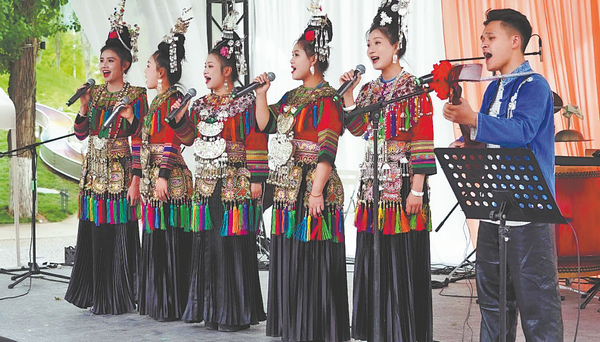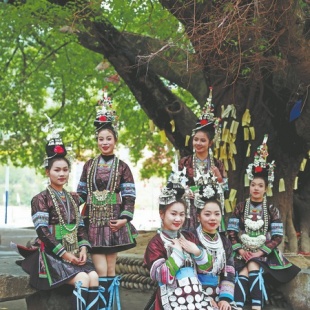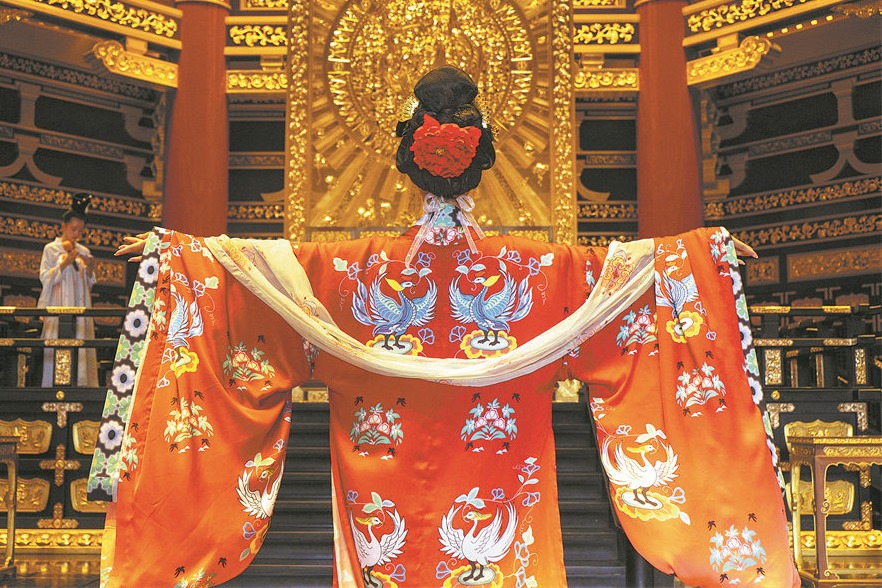Harmonizing film with ancient tradition


"When I heard the performance, I was shaken by the sound. I knew this was the voice I had been searching for," Yang Rui added.
Inspired by the idea of blending this ancient musical style with the film's score, Yang Rui reached out to Yang Xiangni, who is deeply involved in preserving Dong culture in her hometown of Rongjiang county, Guizhou province.
"They didn't see any visuals from the film until the recording was finished. They only had the audio and sheet music — everything else was imagined," recalls Yang Xiangni. "The singing is very different from what we're used to, and there were a lot of key changes. The singing was more difficult."
As Ne Zha 2 became a massive hit — earning an astonishing 15.8 billion yuan ($2.19 billion) globally since its Spring Festival debut, making it the world's fifth-highest-grossing film — Yang Xiangni and her team gained recognition, leading to more opportunities to perform nationwide, including Beijing, Suzhou and Yancheng in Jiangsu province and Nanning in the Guangxi Zhuang autonomous region.
"For me and my team, this was more than just a professional collaboration; it was a way to preserve a cultural treasure while sharing it with a global audience," says Yang Xiangni.
Born in Sanbao village in Rongjiang county, Guizhou, home to many of the Dong ethnic group, Yang Xiangni graduated from the music school of Guizhou University in 2020.During her studies, she honed her vocal techniques and immersed herself in the Dong's ancient songs, becoming inspired to preserve her heritage.





































